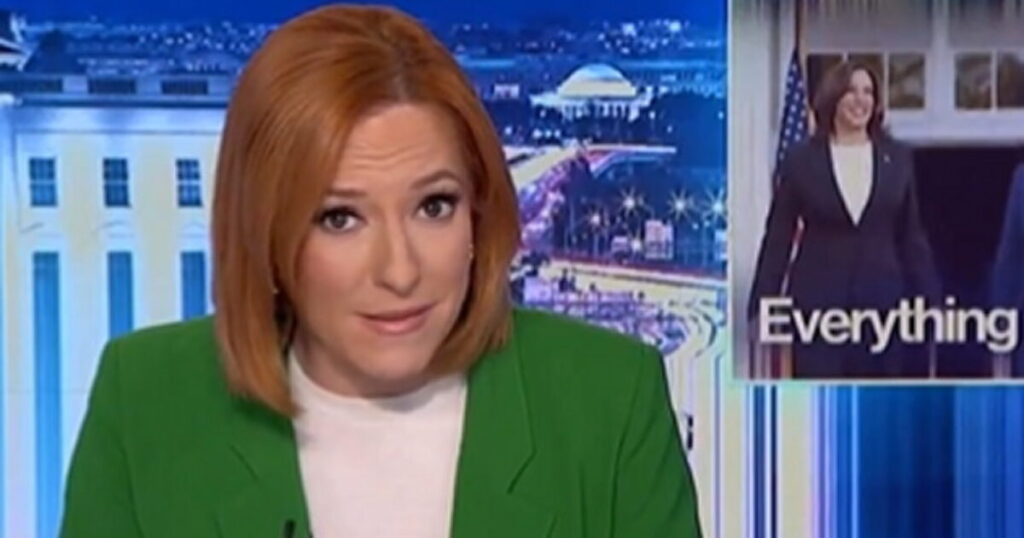In a recent segment on her MSNBC show, Jen Psaki, the former White House press secretary for President Joe Biden, has made a surprising appeal for prominent Republicans, who have historically been vilified by Democrats, to endorse Vice President Kamala Harris in the upcoming election. This request raises eyebrows, considering these very individuals—including figures like George W. Bush and Mitt Romney—have faced significant criticism and even outright derision from the Democratic Party for many years. Psaki’s plea seems to reflect a broader strategy to consolidate Republican opposition to current President Donald Trump by uniting against a common adversary whom they collectively view as a threat to democracy and constitutional norms.
Psaki highlights the endorsements that Harris has already received from some former Republicans, such as Liz Cheney and Cassidy Hutchinson, emphasizing the importance of their voices in the fight against Trump. However, she notes that several other prominent figures, including Mitt Romney and George W. Bush, have been silent or hesitant to back Harris despite voicing concerns regarding Trump’s character and ability to lead. In her view, their endorsement could play a crucial role not just in the current political climate but also in shaping their legacies and the historical narrative surrounding this election.
The crux of Psaki’s argument rests on an implicit call to action for these Republican leaders, underscoring the urgency of their endorsement in light of what she portrays as a significant risk to democratic institutions posed by Trump. She cites Romney’s fears about personal repercussions from Trump, Bush’s long-standing animosity with the former president, and the threats that Mike Pence faced during the January 6th Capitol riot. This invocation of collective responsibility highlights Psaki’s belief that the time for action is limited—the “moment to play a role in the history books” is quickly fading, as she puts it.
Interestingly, while Psaki acknowledges the courage it takes for Republicans like Cheney to stand up against Trump, it is important to note that these endorsements are not without their contradictions. For example, Liz Cheney’s turn against Trump came after her being ousted from her party, which underscores a complex dynamic in the political landscape. The notion that Cheney made a sacrifice by endorsing Harris seems to ignore the reality that her estrangement from the Republican Party was not a voluntary departure but an expulsion due to her resistance to Trump’s influence.
Reflecting upon the potential hypocrisy of this situation, one cannot help but consider how the Democrats’ stance has evolved—remarkably, they now seek the endorsement of individuals they once demonized as political adversaries. This represents a striking shift, especially when one recalls that just two decades prior, George W. Bush was often vilified by Democrats. The irony of the current moment—a desire for support from past political figures who were once considered emblematic of the problem—raises questions about the future identity and coherence of both major political parties.
In summary, Psaki’s call for Republican endorsements for Kamala Harris illustrates a nuanced and contentious relationship within American politics, characterized by shifting alliances and evolving narratives. As the 2024 election approaches, the ramifications of these strategies and the extent of bipartisan cooperation—or the lack thereof—will likely play a significant role in the political landscape. The interplay between these former adversaries poses an intriguing reflection on the broader themes of loyalty, sacrifice, and the quest for political legitimacy in today’s polarized environment.

